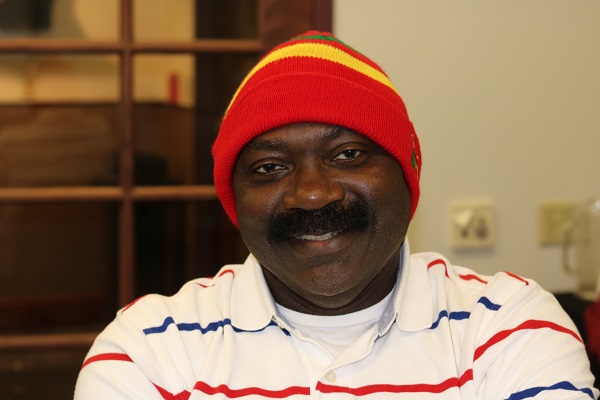Blogs

Flyers Embracing Global Experiences: Dr. Julius Amin
Dr. Julius Amin, Professor in the History Department, and originally from Cameroon, shares his perspective on the importance of engaging others to understand culture and expand our education of each other.
Can you share an intercultural experience or moment that has inspired you?
There was a sense of curiosity in graduate school from my colleagues [that inspired me]. I was the only black student in my class of ten students in a seminar class. The students surprised me by their level of curiosity. They wanted to know where I came from and how we lived in my country. They desired to have more communication. As we talked, they also taught me a lot about American culture. This was during my early years in the United States. I began to realize things are much more different than what you see. It's important to talk with people and as you do this, you realize there is a sense of commonality. From that moment, it became very clear to me that you have to engage people in order to understand them. It has been my view of things up to the present. This small experience in this class impacted me. I salute the student that began this conversation and asked, “where are you from?”
In your opinion, what are some benefits to international education and exchange?
We live in a very different world. That train for internationalization or globalization has left the station, whether we like it or not. We can step into it and help shape it or it will move on without us. There is no better way to understand people and to test our own ability then to be physically present in the environment. There was no better way for me to understand America then to be physically present. There is something different about the air and food...or being able to sit and observe people, explore, and engage in chit-chat. This is crucial in the world we live in. We can’t engage in serious relationships without understanding the culture of the people.
This is the advantage of international education and exchange.
It is important that we educate students for a complex world. And international exchange helps our students to begin to test their ability to be flexible. We can’t say there is only one way of doing things. I tell students that we send to Africa that the experience will teach them something about themselves. By helping students understand the world is much larger than the immediate environment, we help to develop their intellectual curiosity.
As a faculty member, how do you promote international education and exchange or expanded intercultural experiences whether through campus, community, or around the world?
Virtually everything I do in teaching or research has an international dimension or perspective. I walk into class and constantly ask questions global in nature. I also ask these questions in my research. What does it mean to be black, white or a woman in a particular society? What does it mean to be African American in Ghana? There are crucial questions that help us to understand society and culture. When I take students to Africa, I ask them fundamental questions about that society. In asking difficult questions, sometimes the answers are not always there, which is okay. That is education.
Where is a place you have always wanted to explore and why?
For research purposes, I want to further explore Peru but there is some groundwork I need to do first. I need to study Spanish and Afro-Peruvian communities. Participating in the Global Education Seminar (GES) exposed me to this. When I went to Peru for GES, I wondered, “where are black people,” and became curious about understanding the black communities in this country. Wherever I go, I constantly ask questions about race. Peru intrigues me.
What is one aspect or memory of home that you still embrace today?
The sense of community. Everyone watches over everyone; my child belongs to the whole community; when I do well, my community celebrates; when I do poorly, I bring shame to my community---it takes a village.
Who is someone that has inspired you or you believe to be a role model for global leadership? Why?
My Dad. He did not have a lot of education but he was curious about a lot of things. He was a teacher but did not have a degree. He hadn’t traveled much except to Nigeria. Yet, he was curious about the world and how people do things in their communities. To present day I am not sure where this curiosity came from but he urged us to ask questions and valued education. He was an inspiration for me.
If you had to pick a life motto or quote, what would it be? Why?
“The pressures of life are not always distributed by choice.” - John F. Kennedy
